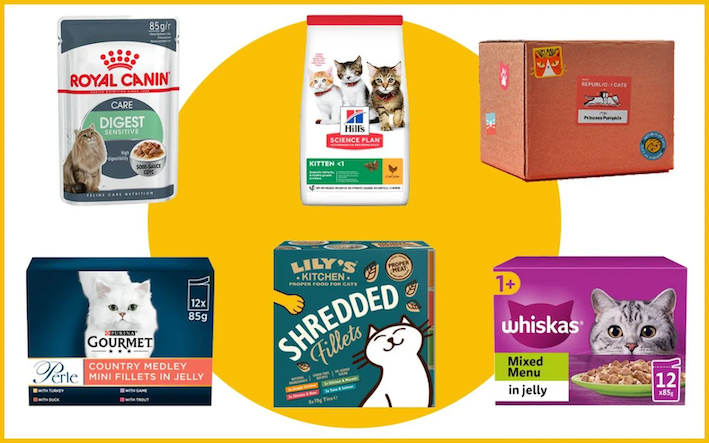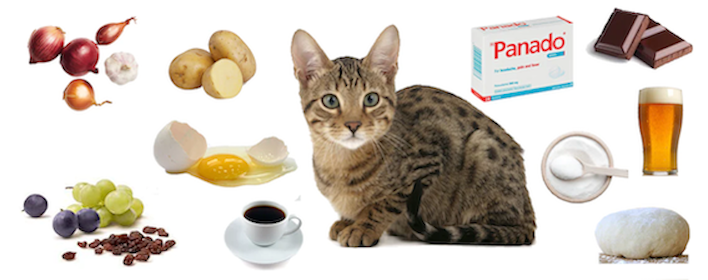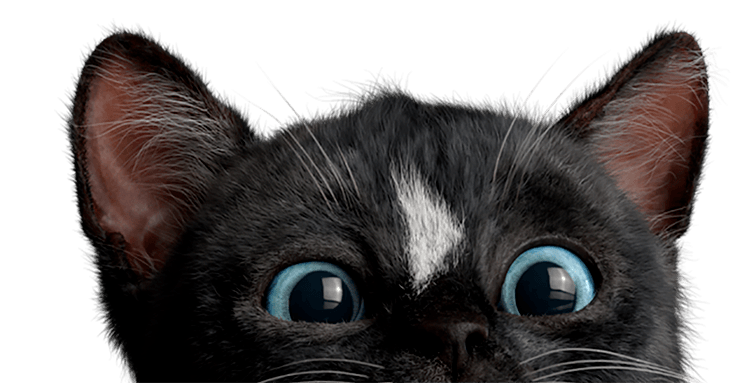Good and Bad Foods
Good Foods
Cats are meat eaters, plain and simple. They have to have protein from meat for a strong heart, good vision, and a healthy reproductive system. Cooked beef, chicken, turkey, and small amounts of lean deli meats are a great way to give them that. Good and healthy dry catfood is also a good option!

Bad Foods
Some of the most toxic food for cats include onions and garlic, raw eggs and meat, chocolate, alcohol, grapes and raisins. Avoid feeding your cat table scraps, especially around the holidays, as these may contain potentially toxic ingredients.

Onions and Garlic
Onions, garlic, shallots, and scallions can cause damage to your cat’s red blood cells and lead to anemia. These foods are typically poisonous when eaten in large quantities, but exposure to concentrated forms of onion or garlic, such as onion soup mix or garlic powder, can also be toxic. Cats with symptoms of lethargy, weakness, reduced appetite, pale gums, and orange to dark red urine should be taken to the vet immediately.
Raw eggs, raw meat and bones
Just like humans, consumption of raw eggs or raw meat can lead to salmonella or E. coli poisoning in cats. Symptoms of the illness vary but can include vomiting, diarrhea, and lethargy. Salmonella and E. coli can also be transmitted to humans, so be careful to properly wash your hands after cooking and keep your cat away from these raw foods. Raw eggs also contain an enzyme that can lead to skin and coat problems. Keep your cat from eating raw bones as well, she/he could choke on them, injure her digestive tract, or damage her teeth.
Chocolate and Caffeinated Drinks
We’ve all heard that chocolate can be fatal to dogs, but it’s just as poisonous for cats as well. Chocolate contains substances called methylxanthines, which can cause vomiting and diarrhea, high body temperature, muscle tremors, abnormal heart rhythm, abdominal discomfort, increased thirst, and seizures. Methylxanthines are also found in caffeinated beverages and should be avoided. See your vet if your cat experiences any of these symptoms. As a general rule of thumb, darker chocolates are more dangerous than milk and white chocolate.
Alcohol and Raw Dough
Alcoholic beverages and foods that contain alcohol can be dangerous for your cat. Ingestion can cause vomiting, diarrhea, tremors, disorientation, trouble breathing, coma, and even death. It’s also important to keep your cat away from raw dough. Raw dough causes expansion in the stomach, or creates alcohol in the stomach. If you think your cat has ingested even a small amount of alcohol, take her to the vet immediately.
Milk and Dairy Products
Even though your cat may enjoy drinking milk, it isn’t necessarily good for her. Cats have trouble digesting the lactose in milk, which can cause an upset stomach or diarrhea. Most cats are only exposed to lactose from their mother's milk when they are kittens. Because kittens only drink from their mother’s milk for a few weeks, their digestive systems are often not equipped to handle a reintroduction to lactose. So, while some cats have no trouble tolerating milk, they are not recommended to drink anything but their mother’s milk while kittens, due to the possibility of digestive issues.
Grapes and Raisins
Even a small amount of grapes and raisins can cause your cat to become ill, they can even lead to rapid development of kidney failure. Within 12 hours of ingestion, vomiting sometimes occurs. Other signs that can show up within 24 hours include lethargy, diarrhea, reduced appetite, abdominal pain, decreased urination and abdominal pain.
Although it isn't clear why grapes and raisins can cause kidney failure in cats, and even a small amount can make a cat ill. Repeated vomiting and hyperactivity are early signs. Although some cats show no ill effects, it's best not to give your cat any grapes and to keep grapes and raisins off countertops and other places accessible to your cat.
Dog Food
Though dog food is not toxic to cats, your cat needs a very different set of nutrients than a dog. Cat food should contain plenty of vitamin A, taurine, arachidonic acid and protein, and dog food has much lower levels of these nutrients. Dogs can survive with lower levels of vitamin A and protein, while cats cannot. Dogs are also able to produce taurine and arachidonic acid, but cats must have these acids in their food. Without a sufficient amount of taurine, cats can develop heart disease, vision and dental issues.
Preventing Cats from Eating Dangerous Foods
- Store foods out of your cat’s reach. Installing cat-proof locks on cabinets may be necessary for a curious kitty.
- Do not let your cat on the counter while you’re cooking or eating.
- Do not feed them table scraps.
- It is especially important to be more mindful during the holidays. There is likely more enticing people food around, much of which can upset your cat’s tummy or even harm her.
